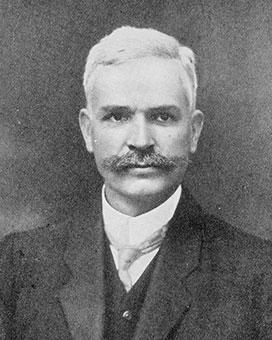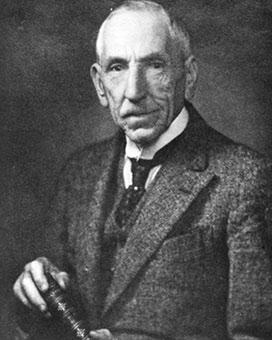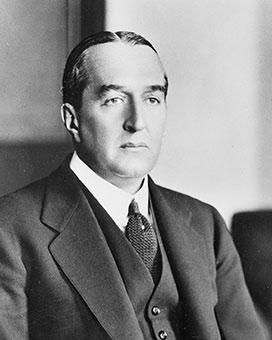Joseph Cook won the federal seat of Parramatta at the first federal election. He held it at the 6 other federal elections he contested before resigning from parliament in 1921.
29 March 1901
After what he described as a ‘nasty, bitter campaign’, Cook was elected Member for Parramatta in the first federal parliament. He was one of the 28 Free Trade members who formed the Opposition, led by George Reid. Edmund Barton led a Protectionist government, with 31 seats, and Labor won 14 seats in the election.
In the Senate the Protectionists were outnumbered, having only 11 seats to Free Trade’s 17 and 8 Labor’s seats. At this first federal election, 56.68% of those enrolled cast their votes, with women voting only in Western Australia and South Australia.
16 December 1903
This general election was Alfred Deakin’s first as Prime Minister, and he had been in office only 3 months. Deakin was unopposed in his Ballarat seat and remained Prime Minister, though the Protectionists lost 11 seats. Labor gained 9 seats and Cook retained his Parramatta seat with the Free Trade Opposition also increased, making the 3 parties nearly equal.
At this election, the first where women throughout the Commonwealth had the same legal right to vote as men, the proportion of voters dropped to 50.27%.
12 December 1906
Joseph Cook was unopposed in the Parramatta seat. At this election Alfred Deakin retained government, with the House of Representatives comprising 16 Protectionists, 4 Independent Protectionists, 26 Labor Party candidates, 2 from the West Australian Party, and 27 from the ‘Anti-Socialist’ group led by George Reid.
13 April 1910
At this election, Cook held Parramatta as a member of the Liberal Party that Alfred Deakin had formed in a merger of the ‘Anti-Socialist’s and the Protectionists. With an increase in voter turnout to 62.80%, the election returned a Labor government with 43 seats in the House of Representatives to 31 for Deakin’s Liberal Party. Labor also won all 18 seats contested in the Senate.
Deakin’s Fusion government also held a referendum on two measures to amend the Constitution at this election. The first, to institute a per capita Commonwealth grant to the States, was lost. The second, a provision for the Commonwealth to take over post-1901 public debts incurred by the states, was successful.
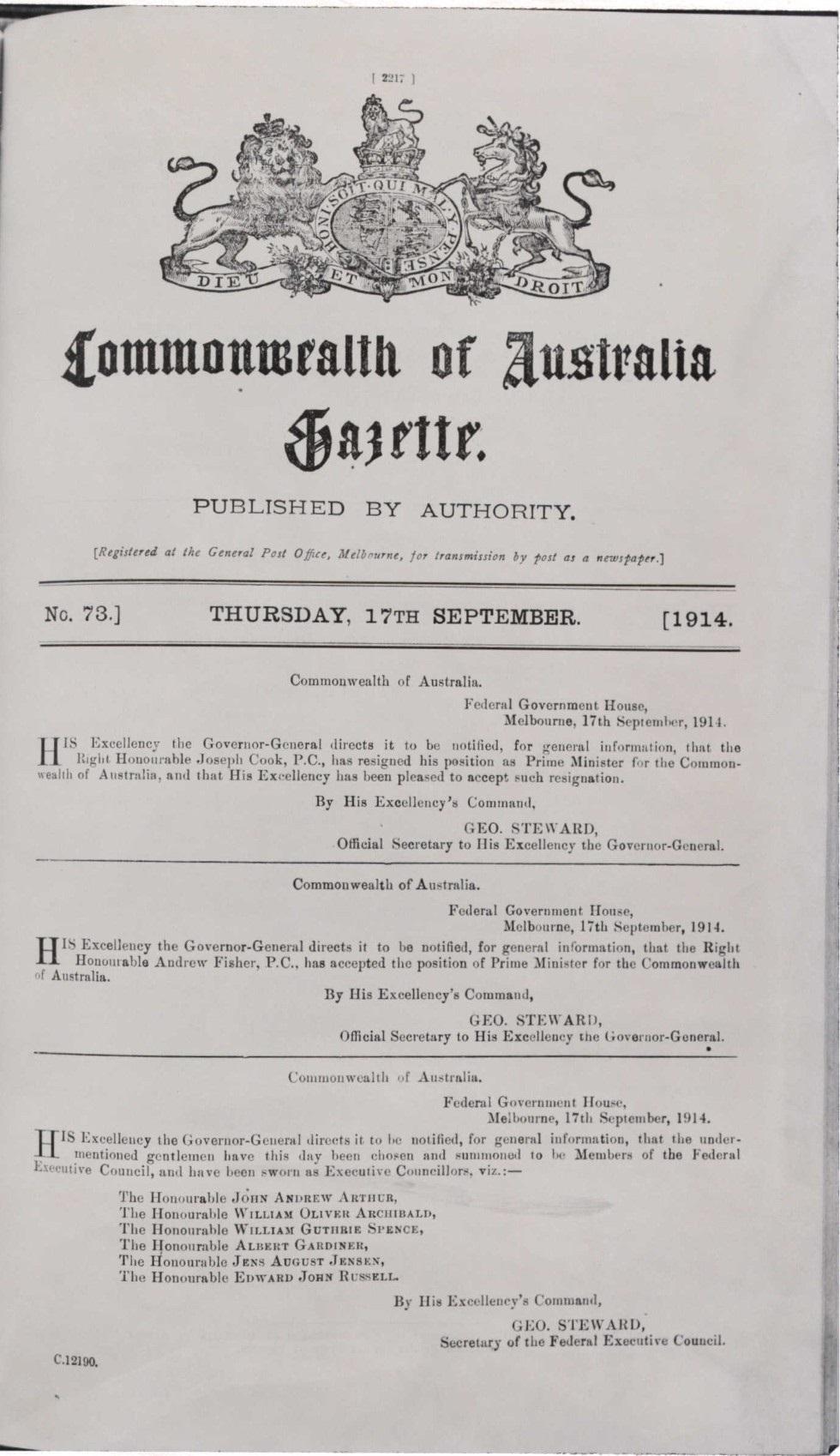
Within 6 months of succeeding Alfred Deakin as Liberal Party leader, Joseph Cook was Prime Minister, and his new government proclaimed in the Commonwealth Gazette. NAA: A5447, 17, p. 6
31 May 1913
Joseph Cook led a Liberal government which won office by 1 seat. The new House of Representatives had 38 Liberal and 37 Labor members. Labor retained a majority in the Senate, with 8 Labor and 11 Liberal senators elected.
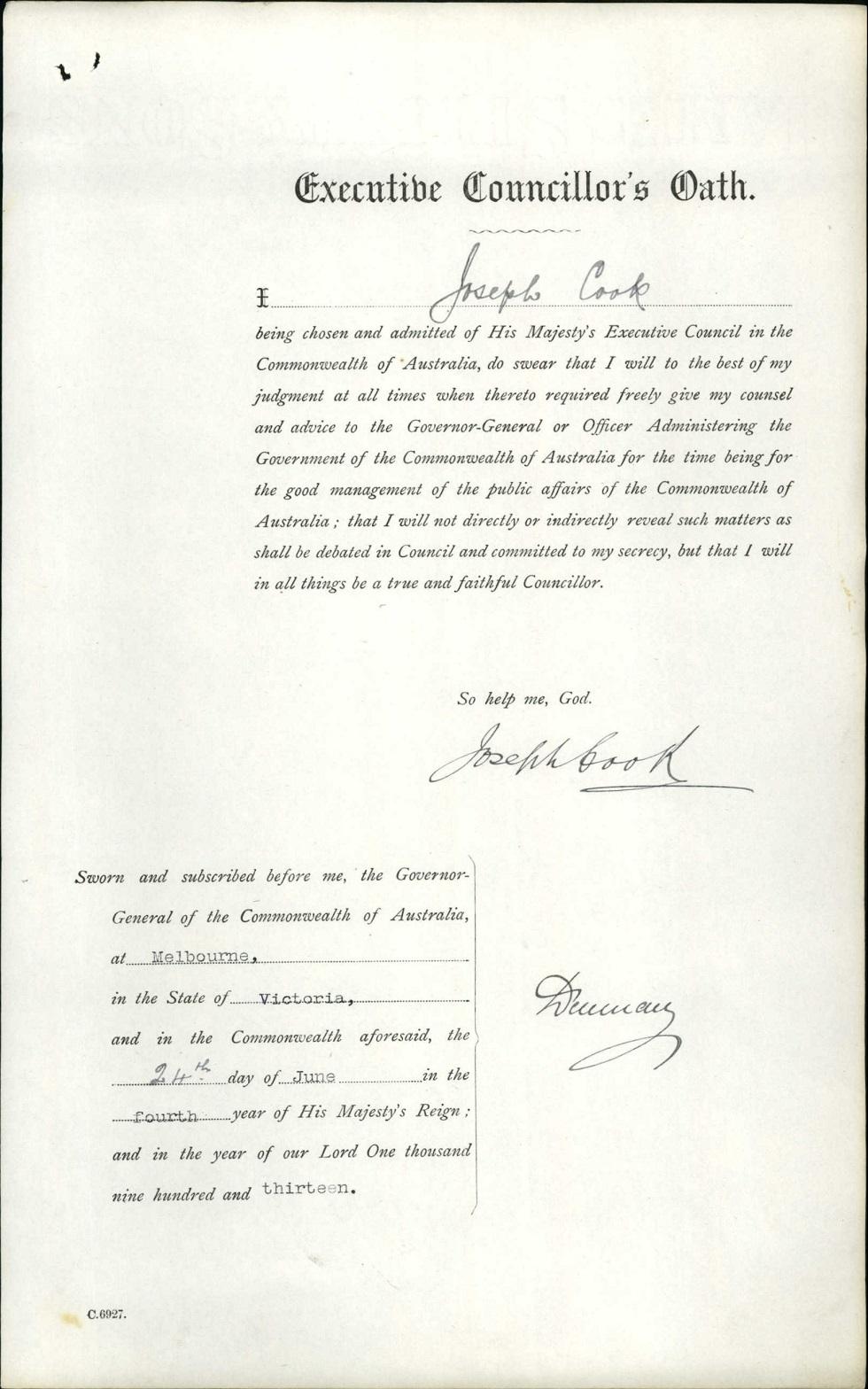
Joseph Cook's oath as Minister for Home Affairs in his own government, signed on 24 June 1913, after he led the Liberal Party to a single-seat victory in the May election. NAA: A5447, 16, p. 4
5 September 1914
The parliament’s first double dissolution election ended Joseph Cook’s term as Prime Minister and returned a Labor government under Andrew Fisher, with 42 seats to 32 Liberal seats and 1 Independent.
5 May 1917
Cook held Parramatta for the Nationalist Party, formed by William Hughes after his expulsion from the Labor Party the year before. The Nationalists won 53 seats and Labor won 22.
13 December 1919
Cook’s seventh and last federal election returned a Nationalist government with a majority in both the House of Representatives and the Senate. The Nationalists led by William Hughes won 37 seats, Labor 26, with 1 Independent. Farmers’ organisations candidates won 11 seats and formed a parliamentary Country Party the following year.
Sources
Cook, Joseph, ‘How an election is run: a study in political warfare’, Life, 15 October 1906
These brief election results relate only to this Prime Minister. They are drawn from the online sources below, where further information can be found.
Australian Electoral Commission: Election results
University of Western Australia: Australian Government and Politics Database


